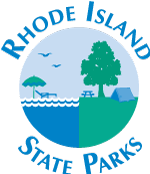Projects at Charlestown Breachway and East Beach in Charlestown
Two separate projects are underway:
Charlestown Breachway long-term repair project
Started in October 2025, this project aims to be completed by April 2026. Expect heavy machinery on the beachfront from Blue Shutters Town Beach to the Breachway during this period. There will be additional traffic and possibly temporary driving access restrictions on the East Beach barrier section during parts of the project. Latest updates and news: https://charlestownri.gov/breachwayinformation
Ninigret Barrier Beach Restoration Project Overview
The Rhode Island Department of Environmental Management (DEM), in partnership with Save The Bay, is conducting a coastal habitat restoration project at the Ninigret Barrier Beach located at East Beach in Charlestown. Invasive plants such as Japanese black pine, Asiatic sand sedge, and knotweed have changed natural sand movement during storms, reducing open sand areas that birds need for nesting and beach space for the public.
Project Schedule
- Late September 2025: Licensed contractors begin herbicide treatment of Asiatic sand sedge and Japanese knotweed in dune areas near the East Beach parking lot and Ninigret sand trail. All treatment areas will be clearly posted.
- Winter 2025–2026: Contractors will cut and mulch Japanese black pine and other woody invasive plants, including beach rose, bush honeysuckle, and bittersweet. Follow-up treatments are planned in 2026 and 2027.
- Late Winter & Spring 2026: Save the Bay will restore salt marsh hydrology by digging shallow creeks with low-ground pressure equipment and by hand. This work will drain standing water that kills marsh plants and creates mosquito habitat.
During the removal of the Japanese black pine this Winter, CRMC beach permit holders should expect to see portions of the trail closed and new traffic patterns in place.
Public Meeting
DEM and Save the Bay hosted a public informational program on the project at the Kettle Pond Visitor Center in Charlestown on Thursday, December 11, from 6 to 7 PM.
The presentations from the meeting are available below:
Maps of Expected Traffic Pattern Changes
This work aims to restore natural barrier beach processes, improve nesting areas for the federally threatened piping plover, support healthier salt marshes, which provide vital habitat for fish, shellfish, and diverse bird species, and enhance the resilience and recreational value of East Beach for the public.
Frequently Asked Questions
This winter, the Rhode Island Department of Environmental Management (RIDEM), the U.S. Fish & Wildlife Service, and Save The Bay will begin restoring the Ninigret barrier beach in Charlestown. The project includes removing invasive plants and non-native pines, promoting the growth of native vegetation, and restoring natural tidal flow and salt marsh migration corridors.
Non-native plants and trees like Japanese black pine, Asiatic sand sedge, and common reed have altered the barrier’s
natural landscape, reducing habitat quality for imperiled beach and salt marsh-nesting birds, and inhibiting the dynamic processes that naturally maintain their habitats.
This project will enhance nesting habitat for the federally threatened Piping Plover and the at-risk Saltmarsh Sparrow, while improving overall salt marsh health — a vital ecosystem for fish, shellfish, and a wide variety of wading birds and ducks. It will also reduce habitat for predatory birds and mammals to support ongoing beach-nesting bird recovery efforts.
Yes. Public access points and recreational use will remain open where safe to do so during construction. Temporary signage may guide visitors away from work areas, but long-term access will not change.
The beach will appear more open and sandier once non-native pines and shrubs are removed. That’s normal and necessary. Within a few seasons, native dune grasses and low shrubs will recolonize, naturally stabilizing sand and reducing dune scarping. Some sparsely vegetated areas will remain to provide ideal nesting habitat for Piping Plovers and Least Terns.
Some conifer-loving species, like Red Crossbills and Red-breasted Nuthatches, may make use of the non-native pines, but they are not dependent on this site. Rhode Island has many other pine barren habitats — including Nicholas Farm, Arcadia, and Big River Management Areas — where such birds may be commonly found. In contrast, Piping Plovers, Least Terns, and Saltmarsh Sparrows rely almost entirely on open barrier beach and salt marsh systems. Restoring Ninigret directly benefits these species of conservation concern.
The restoration is funded by the National Fish and Wildlife Foundation's "America the Beautiful" program and carried out cooperatively by RIDEM, the U.S. Fish & Wildlife Service, and Save The Bay.
